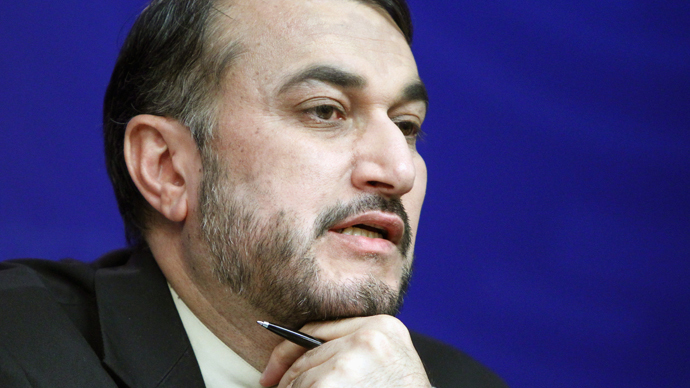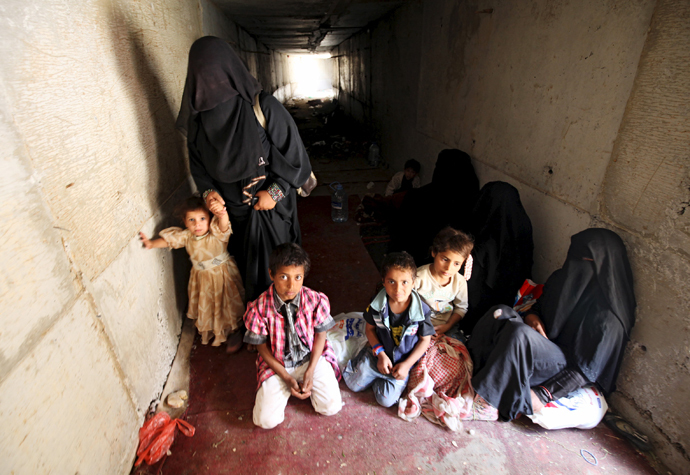‘No more playing with our shared security’: Iran warns it will stand up for Yemen

Iran has made clear it will not let Yemen fall into chaos at the hands of regional actors’ “military adventures.” The two have shared security interests, its top diplomat said, slamming lack of condemnation of Saudi aggression as “unacceptable.”
Hossein Amir-Abdollahain, deputy foreign minister for Arab and African affairs, spoke on Saturday about Saudi Arabia’s foray into Yemen, as the Gulf state is bombarding it and creating a blockade.
He insisted that Yemen’s security is bound to Iran’s, warning: "We will not allow anybody [to] play with our common security through adventurous measures,” Press TV reported.
Amir-Abdollahain reaffirmed Iran’s support for Yemeni peace, saying: “Tehran supports Yemeni-Yemeni dialog [to be held] in a venue agreed upon by all Yemeni groups, and rejects any foreign interference in the country.”

Tension exists on several fronts. Iran-allied Houthi rebels and forces loyal to former Yemeni president, Ali Abdullah Saleh, are fighting elements that support President Abd-Rabbu Mansour Hadi. The president fled to Riyadh and sought help there in a bid to return to power. A Saudi-led campaign of bombardment has been devastating Yemen without a UN mandate since March 26, several days after Hadi was said to have fled the country.
There are reports of Riyadh training a tribal force inside Yemen with the express purpose of defeating the Shiite rebels.
Saudi forces have also blocked humanitarian aid to the volatile country, with some UN Security Council members - primarily Russia - scrambling to reach a solution for a temporary ceasefire. This is in order to deliver humanitarian aid, but other Council members appeared to stall the process. Russian UN envoy Vitaly Churkin believes it’s all talk and no action on the part of the West and Arab states.
READ MORE: West, Arab states only pay ‘lip service’ to Yemen humanitarian aid – Churkin
Iran, has also been at odds with the United States over a couple of maritime incidents in the Strait of Hormuz, which it chalked up to an initial commercial dispute. Analysts believie it to be a reaction to US support of its Gulf Arab allies – principle among them being Saudi Arabia. This has led to the US bolstering its defenses in the Gulf, with a destroyer at the ready.

The tension in the Gulf has coincided with a diplomatic push to deny Iran the right to a nuclear program before the June 30 deadline runs out.
But as Iran’s tit-for-tat with Saudi Arabia and the West is ongoing, Yemen continues to suffer. The country is struggling to import even essentials such as food and water, with an UN-imposed arms blockade on Houthi fighters interrupting any deliveries to the country. The Saudis also last month prevented two Iranian planes from delivering medical supplies and foodstuffs to the destitute population.
READ MORE: Yemen suffers vital food and aid shortages as shelling continues
In five weeks the Saudi bombardment has left nearly 1,250 people dead, according to World Health Organization figures.











